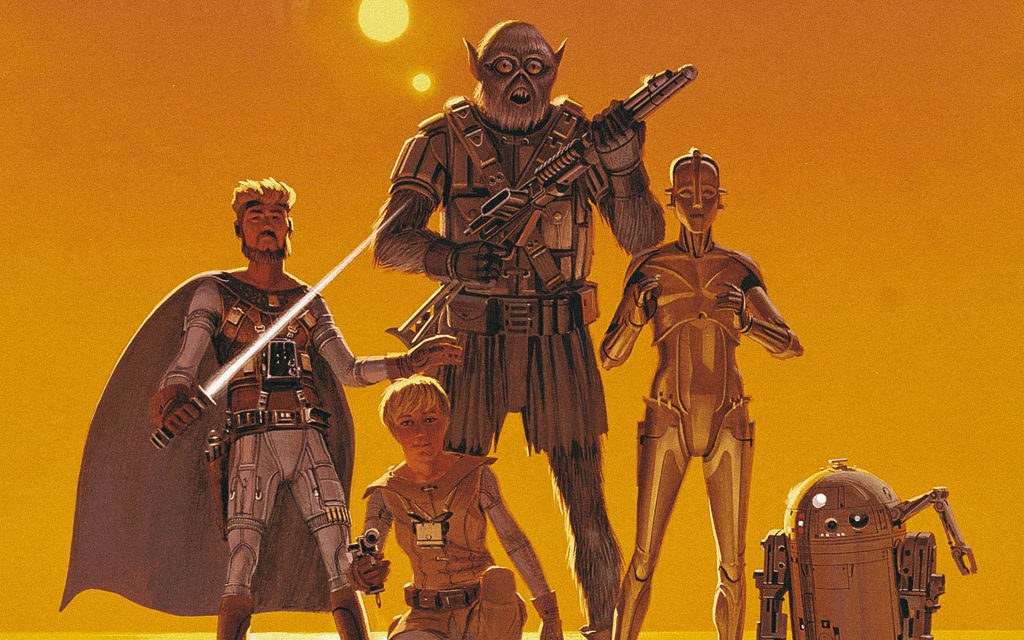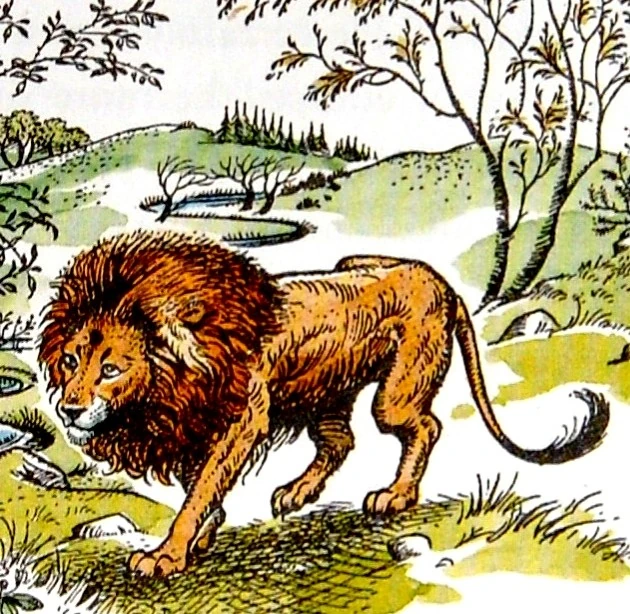STAR WARS & MYTH
Few stories have been so successful in capturing the imaginations of their audiences as Star Wars. Even the name itself evokes a multitude of fascinating, epic images in our minds. It's a story that has been told in multiple mediums (movies, TV shows, music, video games, comics, books, etc.) and that has influenced the lives of many people in very significant ways.
Some may wonder how a story about space battles and adventures was able to achieve so much success. Some say it is because of its initial technological achievements in film. Others say it is due to the shrewdness of George Lucas (the author of the series) as an entrepreneur. But I propose a different answer. I think the answer lies in the story's relationship with myth. I realize some may be perplexed by such a statement. After all, what has the saga of the Skywalkers have to do with myth? The answer is that it has everything to do, and this reality becomes apparent once we examine the origins of the series.
Origins of Success:
The greatest inspiration for George Lucas when sub-creating this great, epic tale was the work of psychologist Joseph Campbell. What Campbell's work did was outline and catalog all the major patterns and "tropes" in mythologies and provide a "psychological" explanation as to why they were so common. He then tried to unite all of these patterns into a single scheme, which he named the archetypal "hero's journey". Thus, he concluded that this way of telling stories, this mythic hero's journey, penetrated and resonated deeply in our being, and that is why we are so enthralled by myths and the when we encounter them. Lucas was fascinated by this theory, and henceforth he sought to craft a story that would follow these patterns to a T. That story was Star Wars.
Hence, the relationship between myth and Star Wars. Without myth, there would be no hero's journey. And without the hero's journey, there would be no Star Wars.
This is why Star Wars has had so much resonance with so many people. It truly does speak in a universal language, the language of myth, that captivates the imagination of anyone who comes across it. The patterns of mythic stories, as Campbell pointed out, do indeed penetrate into the most profound depth of the human person, and Star Wars proves that. It is a story filled with the patterns of myth, and therefore, it is logical that it should have as much of an impact as the ancient mythologies had.
There is, however, more to the relationship between myth and Star Wars than Campell and the hero’s journey because even though Star Wars does present a very good example of a story that follows the patterns, it nevertheless fails in one crucial point. That point is its way of portraying the Divine.
You see, myth is not just patterns. Myth is a way of not just telling stories but also of understanding the world. It's a worldview, as the Inklings well knew. And this mythic worldview has one fundamental aspect which can never be absent, and that is transcendence. Transcendence is something directly from the Divine, God. God Is the Source of all being. Nothing has meaning or transcendence without Him; nothing has existence without Him. The mythic worldview understands this reality, but unfortunately, it seems George Lucas did not.
George Lucas seems to have committed the mistake of thinking that all there was to myth was patterns. Patterns that would help him craft a story that resonated with people. And even though the issue of patterns and their resonance with people is true, it is not all there is to myth. Lucas failed to capture the Source of Myth, the ultimate Cause of why these stories are so captivating in the first place. Thus, transcendence in the world of Star Wars becomes a convoluted mess. There is no unified Source from which transcendence is derived, and so behind the trappings of the patterns which Star Wars exemplifies, all you have is metaphysical chaos.
This is unlike the work of other great myth makers of the 20th century such as Tolkien and Lewis. Contrary to Lucas, they did understand that you need to have a Source for objective transcendence in your sub-created secondary world. It can't all be patterns and theory; it must have metaphysical realism and consistency. That is why you see Aslan becoming a sort of Christ-like figure in the Narnia. After all, Christ is the Divine Itself, and so it follows that all transcendence (and by extension, the story of Narnia) will revolve around Him. The same is true of Tolkien, as is made apparent in the first chapter of his book The Silmarillion. There, Eru Illuvatar (who would come to symbolize God) creates the world of Arda (the name for Tolkien's sub-created world), and in this manner, it is made clear that this world has a transcendent order to it. Everything is ordered by the Divine in both series, and thus is the metaphysical unity, depth, and order, proper to all good myths, established. And it is this metaphysical structure that gives a richness and Beauty to the stories of Tolkien and Lewis.
The Descent into Chaos:
But by lacking the Divine in his work, Lucas' world of Star Wars ends up being shallow and chaotic in contrast. This is where Lucas fails. He uses the exterior patterns of myth, but he does not realize that those patterns follow a more complex metaphysical reality that must be included in the work as well. Perhaps this is why the Star Wars saga, in spite of its initial success, has become so messy in its latest installments. Unlike the first three movies, the last six films have not been universally well-received. They have sparked discomfort and even anger among many of those who loved the first movies.
Something seems to have broken, therefore. The story of the Skywalkers, like the metaphysics of its world, became meaningless and convoluted. Ultimately, there ended up being no order, no Beauty, no transcendence by the end of the ninth movie. Was this merely an error in the screenplay or could there be a deeper reason for the ultimate failure of the Star Wars story? Could it be perhaps that this is due to Lucas' great mistake of thinking the patterns were enough to create a good myth? Maybe it was, maybe it wasn't.
Nevertheless, given how significant the relationship between myth and Star Wars is, it seems to me that there is something to be said about how Lucas, despite having succeeded in employing the patterns of the hero's journey, ultimately failed to capture the essence of myth.




No comments:
Post a Comment